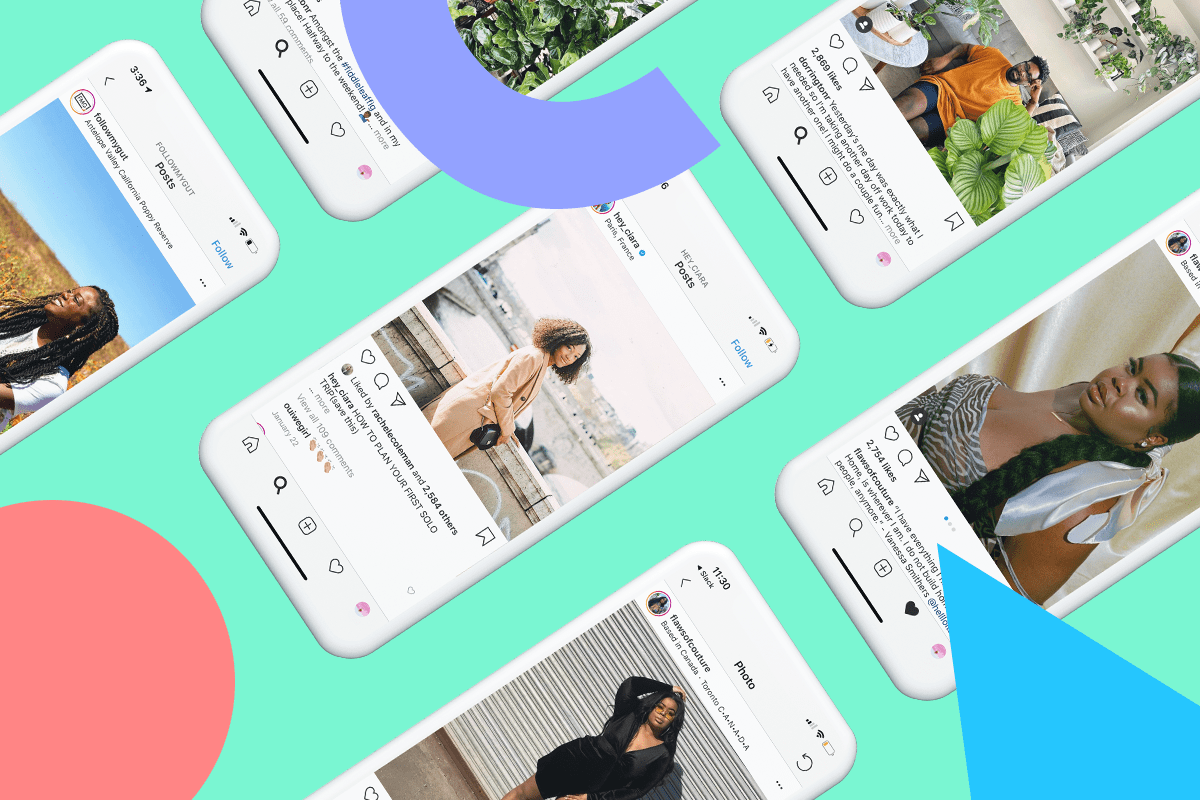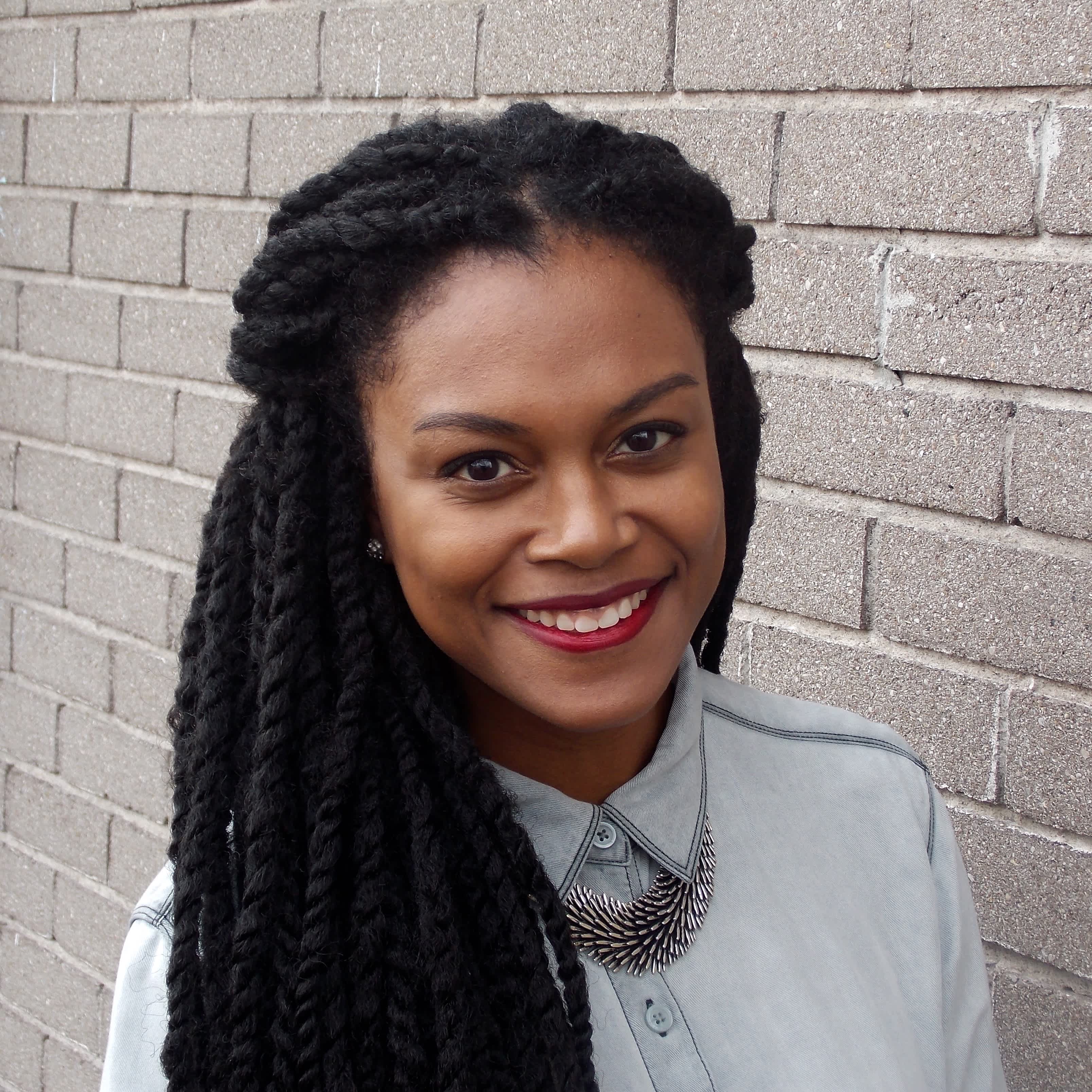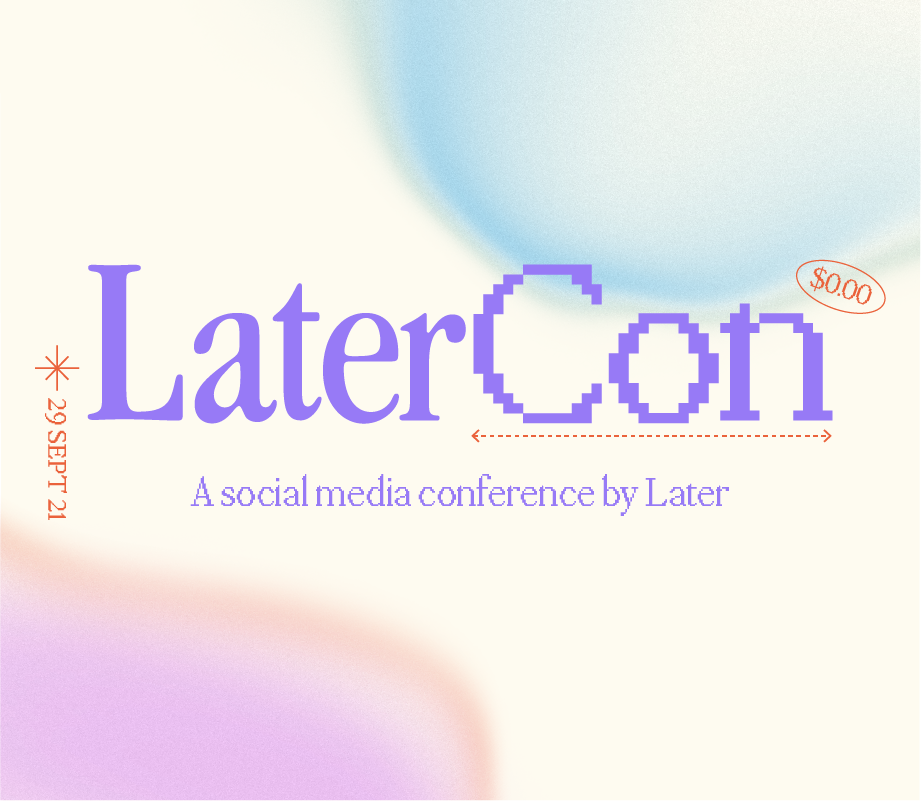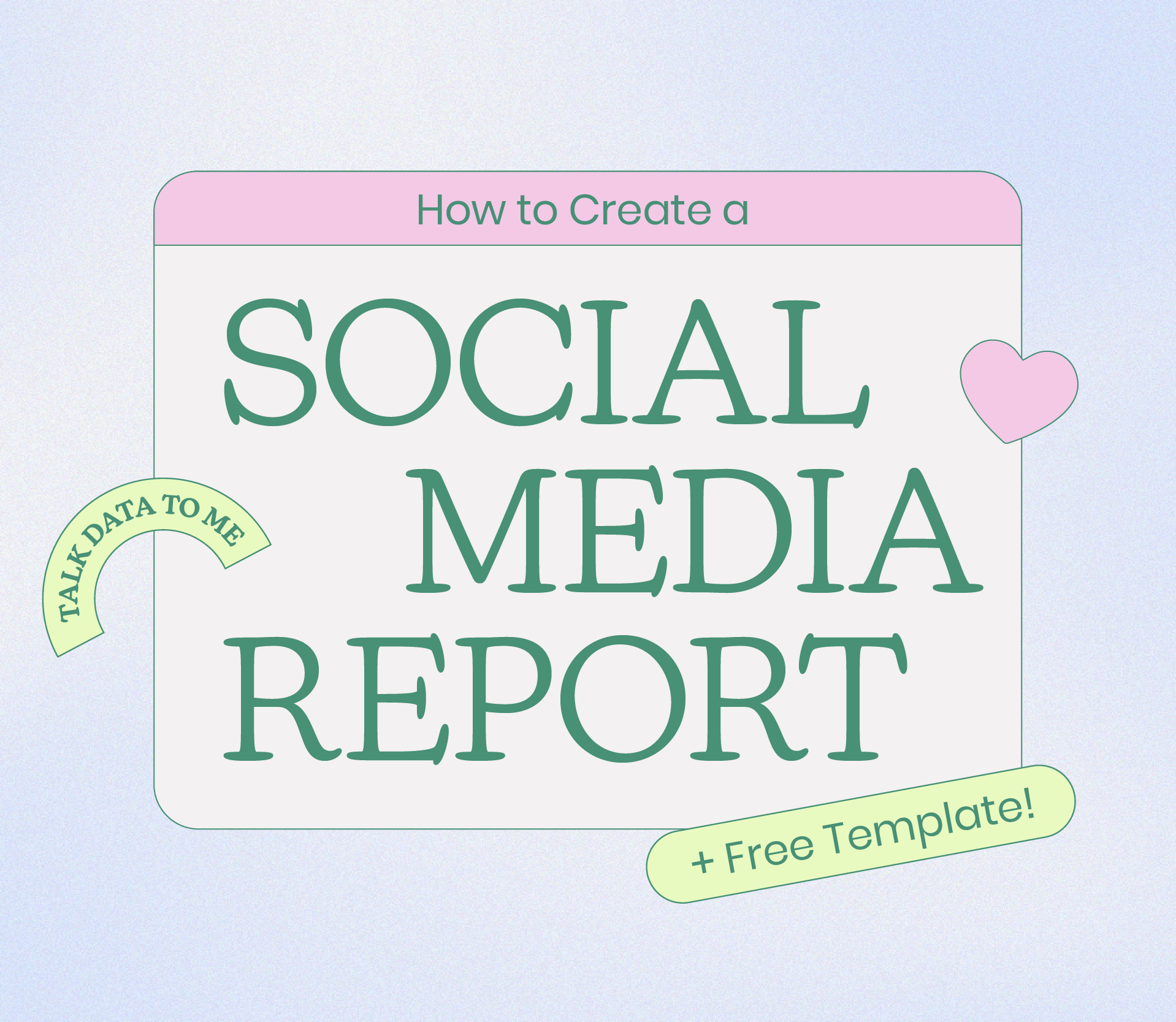2020 saw a shift with brands publicly take accountability for a lack of diversity in influencer marketing.
From the beauty to travel industry, Black content creators have spoken out about tokenization, unfair pay, and microaggressions when collaborating with brands.
We asked 4 Black creatives to share their experiences and speak about the importance of diversity in influencer marketing. Here’s what they had to say:
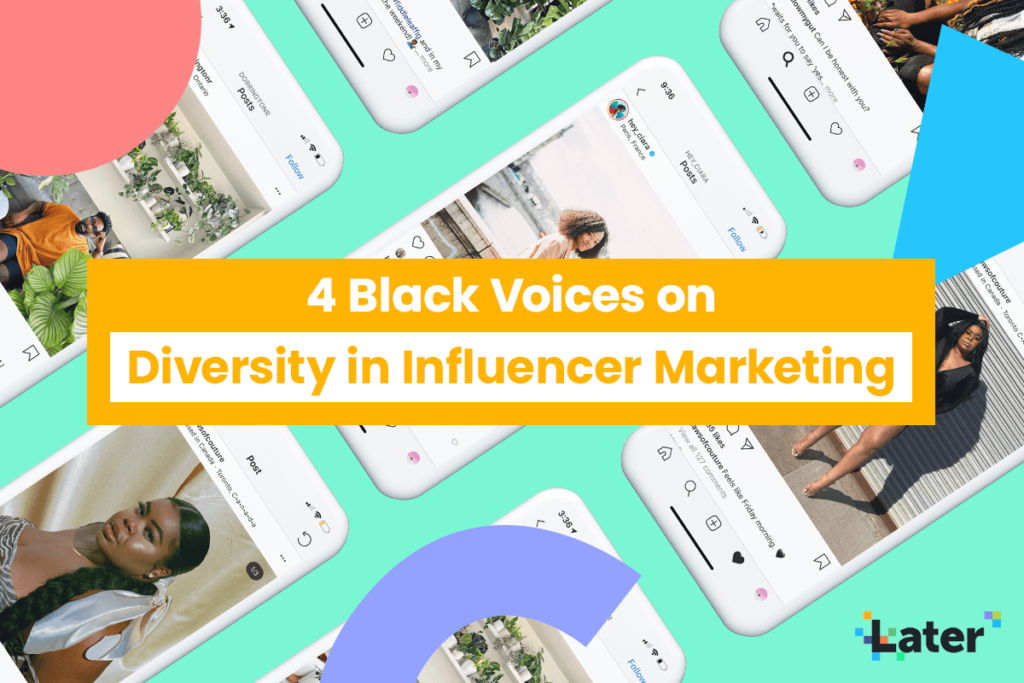
Why Brands Should Have Inclusive Influencer Marketing
Influencer marketing is a great way to increase brand awareness, grow your community, and drive sales on Instagram.
In 2019, reports estimated that the influencer marketing industry would be worth up to $15 billion by 2022 — making it an effective tool for growing your business.
But 2020’s increase in social activism put a spotlight on the lack of diversity in influencer marketing.
The resurgence of the Black Lives Matter (BLM) movement on social media created dialogues around the disparity of Black employees at major businesses, and the inequality experienced by Black content creators.
And this is actively being watched by the newest generation of consumers: Gen Z. As the most racially and ethnically diverse generation, Gen Zers are drawn to brands that are inclusive.
And similar to their millennial counterparts, two-thirds of Gen Zers say that Black people are treated less fairly than white people in the US.
By not partnering with more diverse content creators, brands are missing out on the buying power of millennials and Gen Zers, and they won’t reach a wider audience who could potentially advocate for their products.
Want to create a more inclusive marketing strategy? Watch our Business of Belonging session with strategist Sonia Thompson in the LaterCon replay here.
Diversity in Influencer Marketing #1: Sashagai Ruddock
Sashagai Ruddock aka @flawsofcouture wears many hats. As an entrepreneur, she uses humor and vulnerability to empower her community to be confident.
When she’s not posting on social media, she’s hosting events like Manifesto, or building her portfolio of brands: SHOP FOC Apparel, Nu Ave Nails, and Deddy’s Kitchen.
A busy woman, indeed.
Later: What has been your experience with brands since the resurgence of the BLM movement on social media?
Sashagai: “I saw some change right in the beginning with brands speaking out, but I think they need to be held accountable. My fear is that eventually everyone will forget about it and move on.
I had big companies reach out to me and start off with, ‘We really want you to be an ambassador for us…but there’s no budget.’ And at this point, it’s insulting.
I have a killer media kit. I drive sales. How can you plan a major campaign without a budget? Are you actually going to be serious about representation?”
Later: Why does representation matter?
Sashagai: “It matters because it inspires, can change the way people see themselves, and how they see your brand.
If I don’t see someone like me represented in your marketing, there’s a high chance I won’t shop at your store.
Why? Because I can’t relate. I won’t feel like your products are for me. And it’s not done maliciously — it’s subconscious.
If I see an influencer campaign that has 11 beautiful white, blonde women, I immediately think — their HQ must be majority white.
Because if you had Black employees in the rooms where these decisions were made, and they felt safe enough to voice their opinion, that wouldn’t happen.”
Later: What can brands do to be more inclusive when working with Black creators?
Sashagai: “Pay them, respect them, collaborate with them, and give them the space to create.
Let us be who we are. My content will not look like a woman from Idaho. I’m a Jamaican-Canadian who lives in Toronto. Our experiences are different and that’s okay, but you should be excited for my content, not trying to stifle that creativity and vision.”
Later: What advice do you have for Black creators breaking into the industry?
Sashagai: “Be true to yourself. It sounds corny but that’s what grows your community and builds trust.
You might think it’s from influencer campaigns, but it’s not. Your audience is there and will stay because they like you, not the brands you’re working with.
And when you get to the point where brands are reaching out or you want to start pitching, don’t be afraid to ask for money. Don’t allow fear to stop you from asking for what you’re worth.”
Diversity in Influencer Marketing #2: Dorrington Reid
Dorrington Reid has built a community of over 30K plant lovers who look to his Instagram account for tips, tricks and inspiration.
With a background in visual merchandising and branding, it’s no surprise that his feed features a collection of well-curated and aesthetically-pleasing content.
Later: What hurdles have you faced as a Black content creator, if any?
Dorrington: “The biggest hurdle I’ve faced have been brands undervaluing my work by making low offers and consistently attempting to negotiate my fee.
I’ve also encountered brands that reach out because they like my feed but will ask for adjustments or reshoots to better fit an aesthetic outside of my normal content.
Because I don’t do this type of creative work full-time I can afford to be selective of the brands I partner with and avoid any that don’t allow me to create content with my authentic perspective.”
Later: What has been your experience with brands since the resurgence of the BLM movement on social media?
Dorrington: “I’ve noticed an increase in offers for partnerships with brands aiming to be ‘inclusive’ in their influencer marketing, and they’re more willing to accept my rates without negotiation.
Also, the type of campaigns have shifted. They feature me at the forefront and reach a much wider audience.
But I do find that some of these efforts for inclusivity do not always come from a genuine place, so I opt to partner with Black business owners where possible.”
Later: In your opinion, why does representation matter?
Dorrington: “Representation in every creative industry is vital, but especially in content creation and influencer marketing because it can shift preconceived ideas.
It gives people access and insight into spaces they may not otherwise have an opportunity to be exposed to.”
Later: What advice do you have for business owners who want to work with Black creators?
Dorrington: “I would encourage these business owners to do the work on their own to address any past shortcomings and make tangible efforts to change.
It’s also important for these businesses to allow Black content creators to produce content that is true to them, their lived experiences, and point of view.”
Diversity in Influencer Marketing #3: Ciara Johnson
Ciara Johnson got started in content creation after a study abroad trip in 2014. It changed her outlook on life, and Ciara dreamed of sharing the magic of travel with others.
And she’s done just that. With her long-form captions, colorful imagery, and travel tips, Ciara inspires her audience to explore the world.
Later: What hurdles have you faced as a Black content creator, if any?
Ciara: “As a Black creator, I’ve found that I’ve had to work twice as hard to get the same exposure as my white peers. I must go above and beyond to provide value to my audience because simply showing up won’t cut it in the same way.
I had an instance where a white creator openly shared her pay on a campaign which I was told had no budget. We both asked for pay, had the same deliverables, and I had a higher following along with engagement.
I’d always suspected and heard that Black creators were paid less, but this experience shook me. On the bright side, I learned an invaluable lesson about knowing and maintaining my worth.”
Later: In your opinion, why does representation matter?
Ciara: “I’m extremely passionate about the role media plays in our everyday lives, and how our decisions and views are influenced by it.
With representation, we are able to see what’s possible for ourselves. We’re able to feel like we can start our own business, own our own home, or even travel the world on our own dime. We have unique experiences, voices, and stories that deserve to be heard.”
Later: What can brands do to be more inclusive when working with Black creators?
Ciara: “Brands can ensure that they’re thoroughly searching for Black creators to work with, have equal representation across campaigns, hire Black creators to consult with on these issues, pay Black creators equally, and hire more Black people internally so that inclusivity is a natural part of the conversation.”
Later: What advice do you have for Black creators breaking into the industry?
Ciara: “I’d advise Black creators to find other Black creators to connect with. Oftentimes, we share the same struggles and it helps to know you are not alone.
And once you can afford it, hire a business coach who can help you level up. They’ll provide education and information in areas you might be struggling with. Don’t be afraid to ask for help!”
Diversity in Influencer Marketing #4: Danielle Salmon
Danielle Salmon loves food, photography, and blogging. So much that she’s built a successful restaurant discovery blog based in LA and has been invited to cover food at both the Emmy Awards and The Oscars.
Her community has grown to love both her reviews and Instagram Stories where she shares her day-to-day activities — from her job as a Public Affairs Representative to visiting new food spots.
Later: What has been your experience with brands since the resurgence of the BLM movement on social media?
Danielle: “It’s been a roller coaster experience.
I’m glad brands are finally being inclusive, mad that it has taken some so long to care, questioning who legitimately supports diversity, and am also completely fatigued.
I’ve noticed more brands reaching out to me to collaborate on potential campaigns and have turned down those who seem like they are only riding the trend.”
Later: What hurdles have you faced as a Black content creator in your industry, if any?
Danielle: “While photographing food in restaurants, I’ve received odd looks and I’m often the only Black person at events.
I’ve had a popular non-Black food content creator continuously call me the n-word (sans ‘er’) in front of others, even after asking him to stop. And I’ve had a patron in a restaurant speak derogatorily about my skin color.
Being professional yet standing up for myself during uncomfortable situations has been hard. I’ve cried, picked myself up, and made myself stronger, but I wish I didn’t have to be wary of these potential hurdles.”
Later: What tips do you have for business owners who want to work with Black creators?
Danielle: “Research Black creatives relative to your industry, find those who resonate with you, and get to know them.
When you do reach out, treat them the way you would treat non-Black creatives. Negotiate fair terms in your contracts and offer proper pay that factors in your budget.
Working with Black creatives is easy; society is the one who makes it seem hard.”
Later: What advice do you have for Black creators breaking into the industry?
Danielle: “Working with brands who don’t align with your values can jeopardize your authenticity and reputation.
If you’re in a position where a brand reaches out to you for a partnership, research their stance on issues that are important to you. Remember, all money isn’t good money, especially if it compromises you and your brand.”
In 2021 and beyond, creating an influencer marketing campaign should be inclusive from the onset.
But it’s important to be authentic, avoid tokenization, and pay equally for work. Diversity in influencer marketing is not only an effective tool for representation, but it can help grow your business.
Who are some of your favorite Black content creators? Let us know on Later’s Instagram account!
Editor’s note: These interviews have been edited for clarity and length.
Subscribe to Later’s free newsletter and get the latest social media news, trends, insights, and more!
